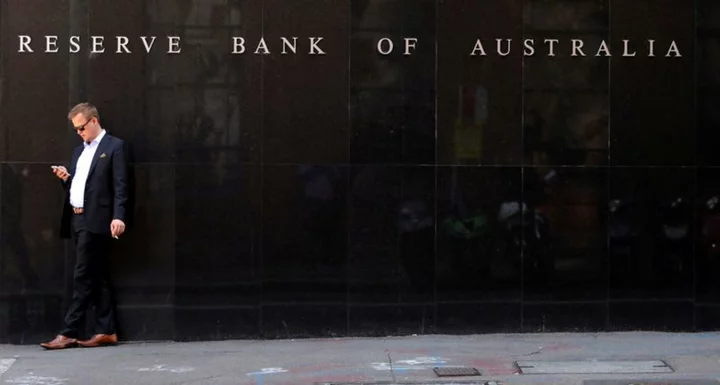By Jamie McGeever
A look at the day ahead in Asian markets from Jamie McGeever, financial markets columnist.
The Reserve Bank of Australia takes center stage on Tuesday, with the consensus view of economist marginally tipping toward expecting a 25 basis point increase in the benchmark cash to a 12-year high of 4.35%.
South Korean consumer price inflation for June will be the other main regional focal point for Asian markets, where trading activity will be much lighter than usual due to the July 4 holiday in the U.S.
Investors look to have started the new trading quarter with a pretty aggressive appetite for risk. World stocks on Monday rose for a fifth day, pan-Asian stocks excluding Japan jumped 1.5% for their best day in a month, and a near-7% rally in Tesla shares helped propel Wall Street higher.
High-yield bond indexes are hovering around their highest levels in months - U.S. junk bond prices, in particular - suggesting investors see no imminent threat to markets or the economy from higher rates, bond yields and borrowing costs.
They are also ignoring the red flags being waved by the U.S. yield curve as the spread between two- and 10-year yields rose to 110 basis points on Monday, the deepest inversion since 1981. An inverted curve usually signals an incoming recession.
But that is for another day, it seems.
Traders in Asia on Tuesday will turn their focus to Australia and the RBA. The decision is finely balanced, according to a Reuters poll - 16 of 31 economists surveyed expect the central bank to hike its official cash rate to 4.35%, and the remaining 15 predicted a pause.
Another hike would be the 13th of the RBA's tightening cycle. Unlucky for some? Interest rate swaps markets are only attaching a one-in-three probability of a hike, and around a two-in-three likelihood of no move.
Inflation slowed to 5.6% in May from 6.8% in April, but that is still well above the RBA's 2-3% target range, suggesting more tightening may be required. However, it was the biggest fall in two years and the RBA has surprised markets already by pausing in April.
In another Reuters poll, economists said they expect annual consumer price inflation in South Korea to have slowed in June to 2.85% from 3.30%. That would be the lowest since September 2021.
Figures on Monday showed that factory activity in South Korea shrank for a record 12th consecutive month in June.
Here are key developments that could provide more direction to markets on Tuesday:
- Australia interest rate decision
- South Korea inflation (June)
- Germany trade balance (May)
(By Jamie McGeever; Editing by Marguerita Choy)

